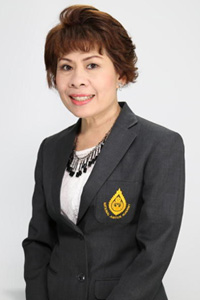
Deputy Defence Minister Gen Yuthasak Sasiprapa denied it was his voice in the controversial amnesty audio clip.
But his denial was a useless exercise.
Almost everyone now believes the recording is authentic. The naturally flowing conversation between the two men, believed to be Gen Yuthasak and the de facto leader of the Pheu Thai Party, Thaksin Shinawatra, indicates it was not doctored. The contents also reaffirm Thaksin's long-known determination to push for an amnesty bill and to control the military.
That control will be completed through a military reshuffle with the retirement of the current batch of top brass after 2014.
The conversation was supposed to be a secret. But now it's out in the open, catching the Pheu Thai Party off-guard. It is now trying to control the damage.
"Be calm" is the message from Pheu Thai's political strategy committee led by Somchai Wongsawat, former prime minister and brother-in-law of Thaksin.
The more denials the government makes, the more it will lack credibility. This does not mean the government's highest priority will change _ that is to bring Thaksin home as soon as possible.
The real leader of the Pheu Thai Party has always emphasised the importance of the amnesty mission to his relatives and close aides who have a say in selecting cabinet ministers.
The Yingluck Shinawatra administration has had four reshuffles of the cabinet during the past two years.
With every new cabinet, achieving an amnesty bill which would benefit Thaksin is always among the government's top priorities.
It is not surprising then that the amnesty mission was the main focus of the recorded conversation. The man alleged to be Gen Yuthasak proposed a plan to send the amnesty bill to the Defence Council to get approval from the top brass first.
The next step is to send the bill to the National Security Council, which would then seek cabinet approval to use the government's executive power to cut through legal procedures by issuing the amnesty bill as an executive decree instead.
This would not only save time, but prevent heated parliamentary debates. In the recording, the men dismissed the anti-Thaksin movement. "They cannot do anything," said the man alleged to be Gen Yuthasak.
"It's game over if the military does not back them. That's why I said we have to get the military on our side."
This statement shows the Thaksin camp is not worried about the anti-government demonstrations, including the white-mask rallies.
Some Pheu Thai members, however, have expressed reservations about Gen Yuthasak's alleged role as a secret liaison between Thaksin and influential figures from the ammart camp such as Gen Prem Tinsulanonda.
He is also credited for helping forge the trust between Ms Yingluck and army chief Prayuth Chan-ocha and Supreme Commander Tanasak Patimapragorn.
According to the recorded conversation, Thaksin has already taken control of the military. Now that the amnesty move _ with co-operation from the military _ has been exposed, the plan has been aborted.
Meanwhile, the push for an amnesty bill through parliamentary mechanisms may have to be postponed.
Originally, the amnesty bill sponsored by MP Worachai Hema was set to be deliberated right after the passing of the national budget and the 2-trillion-baht borrowing bill.
The Worachai bill is believed to have a political component to extend an amnesty to Thaksin.
Certainly, any efforts to push for a wholesale amnesty bill to help Thaksin would face fierce opposition. The red-shirt movement would also oppose the bill which will benefit Democrat leaders and the military.
The streets would be full of mass demonstrations again.
The move to issue the amnesty as a royal decree instead of a bill shows the government does not care about minority voices or popular opposition at all, especially now that it holds a majority voice in parliament and has won support from the military.
The recorded conversation shows the men are brimming with confidence, believing the prime minister now has the upper hand over the military.
The future looks even more promising for them when the present batch of the top brass retires after 2014. Although the military has its own succession rules, politics can never be discounted.
The closer one's ties to the ruling power, the more opportunities one has to preserve one's power, both before and after retirement.
This audio clip has set the government's amnesty plan back several steps. We will have to watch closely now to see what the government will do next to bring Thaksin home.
Nattaya Chetchotiros is an assistant news editor, Bangkok Post.
